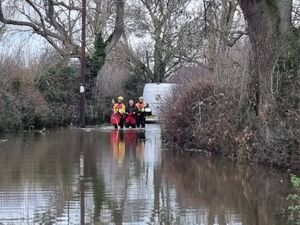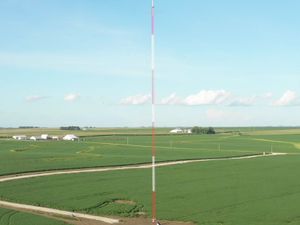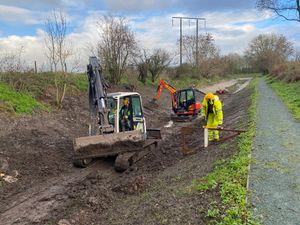'Unsafe and fundamentally flawed': Cycling charity criticises Shrewsbury relief road as objections top 5,000
Objections to Shrewsbury's controversial North West Relief Road have topped 5,000 - with a major cycling body insisting it is "fundamentally flawed with major safety concerns".
The planning application for the road project reopened to comments last month after more than 100 documents addressing environmental issues were added.
Around 200 more objections have been filed against the road, which would stretch for four miles from Churncote roundabout to Battlefield, effectively completing a ring road around Shrewsbury.
Environmental damage and cost implications have been the main concerns about the project, which was last priced up at £81 million, with £54.4m coming from Government, £28.5m from Shropshire Council, and £4.2m from the Marches LEP. Sharp rises in construction fees mean the overall cost will have increased significantly.
Active travel has also been a bone of contention with this project, and now Cycling UK head of campaigns Duncan Dollimore has weighed in.
He pointed to a number of "critical fails" in design, including a shared path for cyclists and pedestrians instead of a 3m path for cyclists only, not enough separation between cyclists and cars travelling at 60mph, no barriers from motor vehicles on the carriageway, and that the 60mph speed limit would be too high.
Mr Dollimore said the design "not only fails to comply with the relevant cycle infrastructure design guidance, but is so inadequate that it would present serious safety concerns, amounting to a critical fail in terms of design standards and guidance".
He added: "Updated cycle infrastructure design guidance was published by the Department for Transport on July 27, 2020.
"That guidance should be applied to all changes associated with highway improvements, new highway construction and new or improved cycle facilities, and guidance applied with immediate effect."
The guidance states: "In rare cases, where it is absolutely unavoidable, a short stretch of less good provision rather than jettison an entire route which is otherwise good will be appropriate. But in most instances it is not absolutely unavoidable and exceptions will be rare."
Mr Dollimore said: "This is not carte blanche to ignore the guidance where it is inconvenient or costly to comply, but does allow for rare cases, where it is absolutely unavoidable, where a short section of less good provision might be acceptable in an otherwise good scheme. That is not the position with the NWRR design proposals, which are fundamentally flawed throughout, presenting major safety concerns, and with no rationale presented to justify any diversion form the applicable design standards.
"I should add here that it seems that the applicant may be assuming that the guidance doesn't apply to this scheme because the scheme was already in development when it was published, or that even if the guidance does apply, that publication after development of the scheme commenced in and of itself provides a justification for non-compliance with the guidance. Neither is correct.
" I submit that the failure to make any attempt to comply with current design standards means the proposed scheme isn't fit for purpose in terms of cycling infrastructure, is unsafe, and is a fundamentally flawed scheme which ignores current infrastructure design standards."
Shropshire Council has been contacted for a comment.





